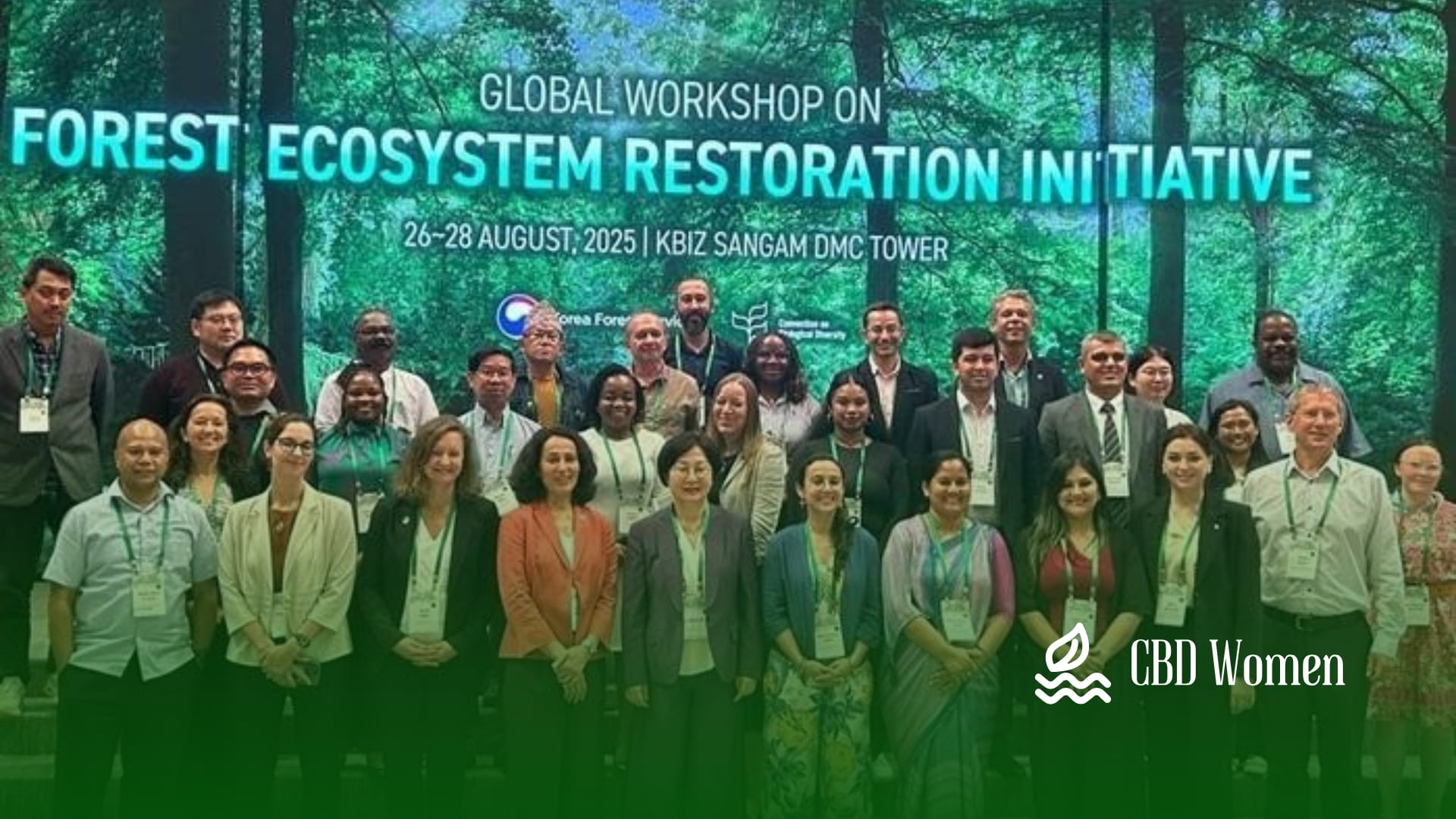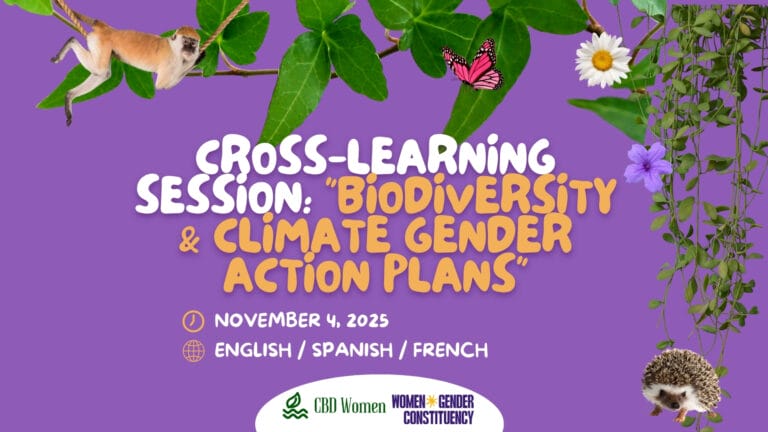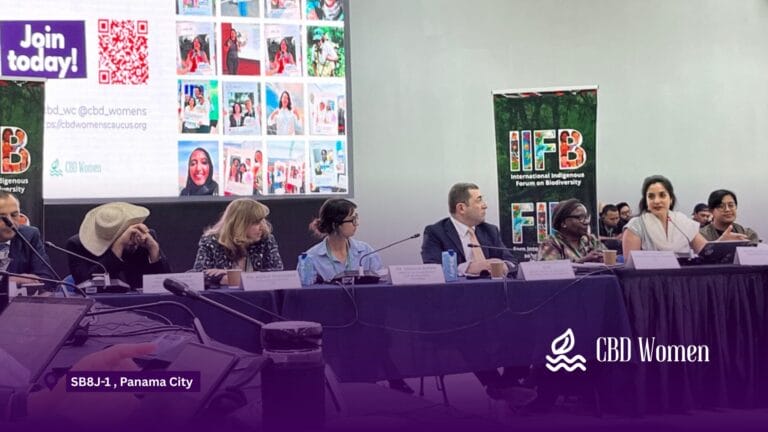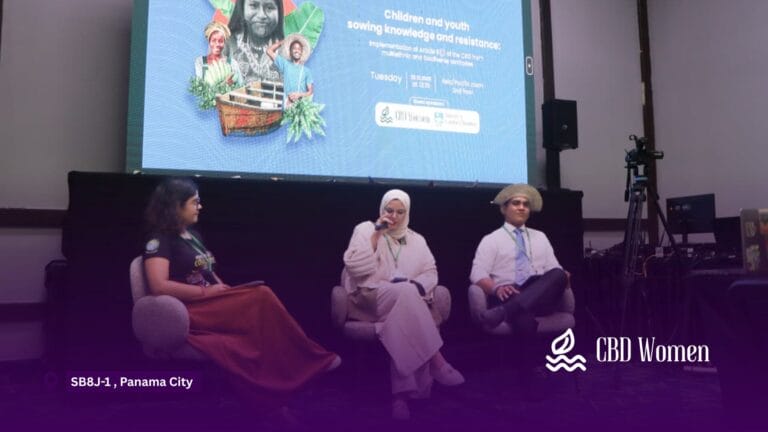By Ms. Bharati Pathak, Executive Advisor, Women Rights and Resource Network (WRRN)
Disclaimer: The views expressed in this blog are those of the author and do not necessarily reflect the official position or opinions of the CBD Women’s Caucus
Forest Restoration at the Global Level
From August 26–28, 2025, the Global Workshop on the Forest Ecosystem Restoration Initiative (FERI) took place in Seoul, Republic of Korea. The workshop was co-organized by the Korea Forest Service (KFS) and the Secretariat of the Convention on Biological Diversity (CBD), with financial support and technical assistance provided by KFS.
This gathering represented a significant milestone in the strategic development of the Forest Ecosystem Restoration Initiative (FERI), which has served as a guiding framework for international forest restoration efforts since its establishment in 2014. The workshop aimed to advance the initiative’s objectives and chart the course for its next phase of implementation.
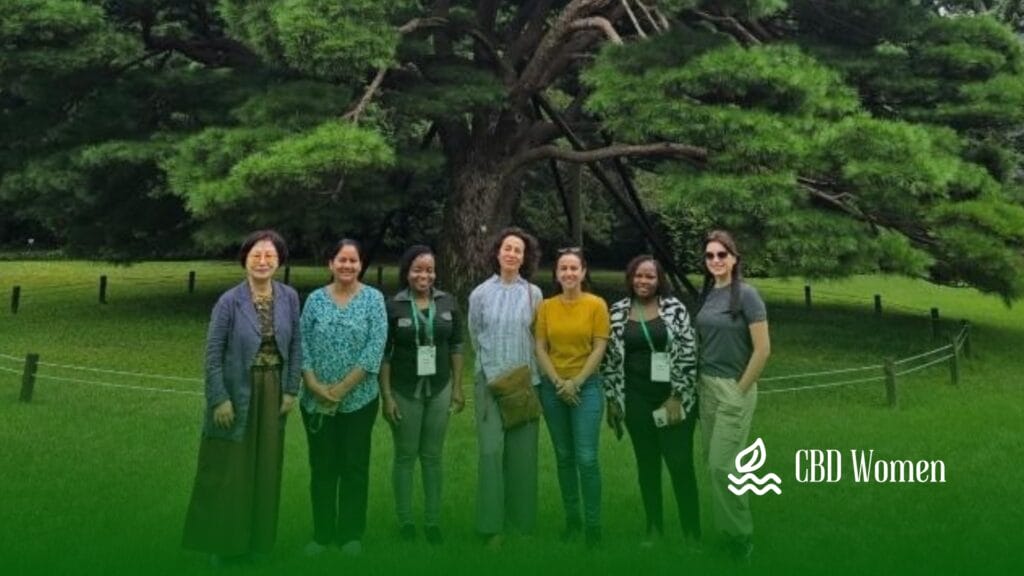
Women at the Forefront of Restoration
I attended the workshop on behalf of the CBD Women’s Caucus, contributing to discussions that underscored the critical importance of gender perspectives in forest restoration. The workshop offered numerous learning opportunities that enriched my understanding of the challenges and solutions surrounding forest restoration, especially how we can strengthen the role of women in these processes. One of my key reflections was the recognition that forest conservation is a shared responsibility requiring collective action. The workshop highlighted that meaningful participation from all sectors is essential for success, including the active involvement of Indigenous Peoples, local communities, Women, youth, and government institutions at all levels.
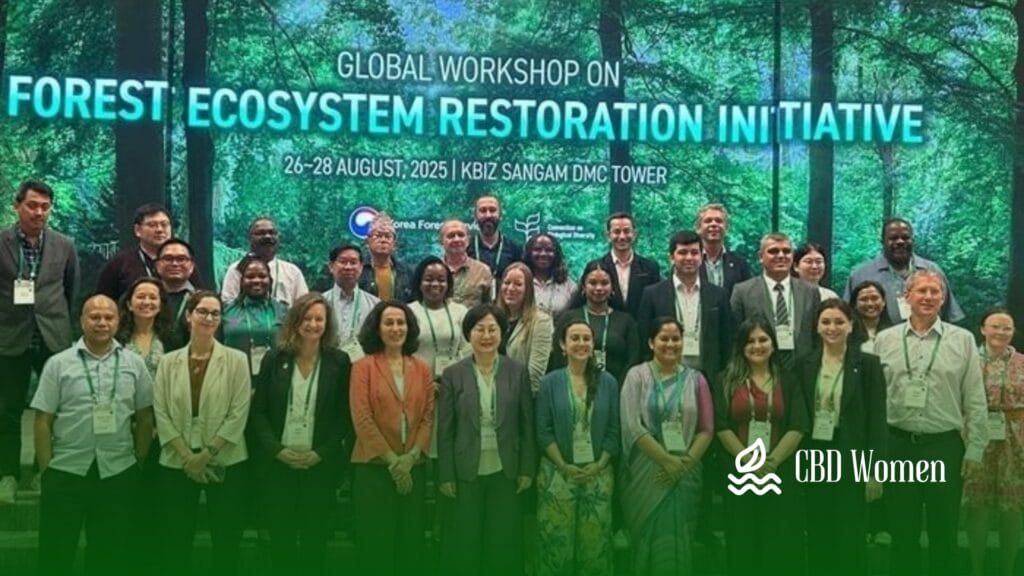
Key Highlights and Takeaways
A significant concern that emerged during our discussions was the gap between policy formulation and implementation in restoration initiatives. While we have developed sound restoration policies, their effective implementation remains inadequate. This is an area that urgently requires improvement and focused attention.
Another critical issue highlighted was the insufficient integration of traditional knowledge and local skills in restoration policies. The workshop underscored the importance of incorporating indigenous and community-based knowledge systems into our restoration frameworks, as these represent invaluable resources that have been historically underutilized.
Throughout the workshop, there was a strong emphasis on recognizing and encouraging communities for their remarkable contributions to restoration efforts. The participants agreed that community engagement and empowerment should be at the forefront of our
Restoration strategies, as local communities have demonstrated exceptional dedication and results in forest restoration initiatives.
The workshop featured comprehensive discussions on the impacts and effects of climate change, particularly emphasizing the critical importance of water, land, and biodiversity conservation for restoration efforts. These interconnected elements formed the foundation of our restoration dialogue, highlighting how climate change challenges require integrated approaches to ecosystem recovery.
A particularly noteworthy aspect of our discussions focused on the contributions of rural women to restoration initiatives. While we acknowledged the significant role that rural women already play in restoration work, there was unanimous agreement that substantial investment in capacity building and skill development for women is essential. Empowering rural women through targeted training and resources emerged as a priority area for enhancing restoration outcomes.
The workshop also highlighted the crucial role of technology in disaster management and restoration processes. Participants recognized that leveraging appropriate technologies can significantly improve both the efficiency and effectiveness of restoration interventions, particularly in disaster-prone areas.

